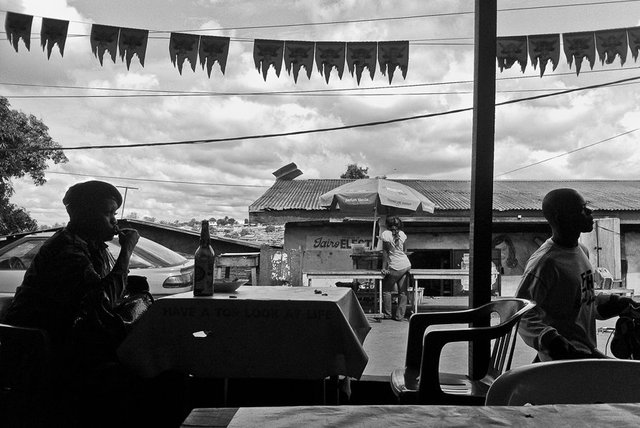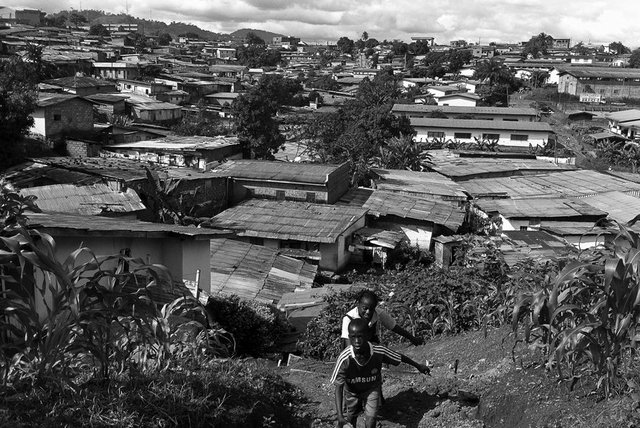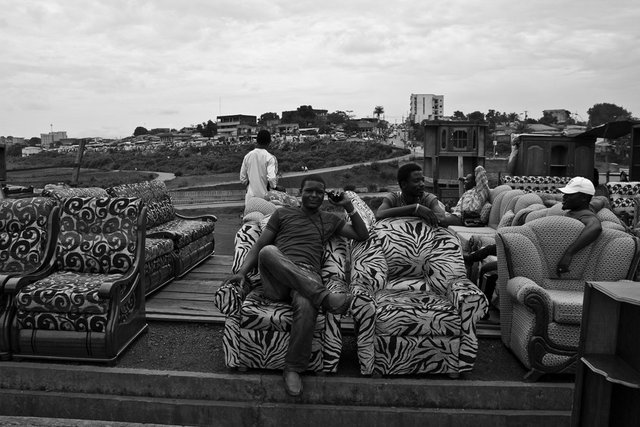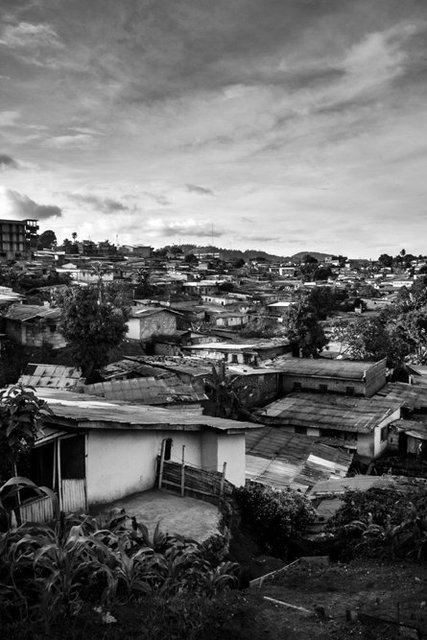
This survey outlines in general terms the situation of conventional and traditional medicine (two omplementary and antagonistic systems of care) in Cameroon, through 35 video interviews (and photographic portraits) to traditional doctors, conventional doctors, and patients. Places of the research are public clinics, private clinics, and traditional clinics in the urban areas of Yaoundé and Baffousam and rural areas of Baham and Kribi. The survey focuses on traditional products and herbal drugs proposed and used in traditional medicine, and excludes the spiritual and mystical terapies offered in traditional medicine. This survey was sponsored by Docemus Onlus (www.docemus.it); in Cameroun, i have collaborated with the CIRCB (International Centre for Research on HIV Chantal Biya), a center of excellence for the study of HIV in Central Africa. I encountered several criticities, that this work tries to highlight: 1) Traditional medicine is a deeply rooted knowledge, based on a different conception of illness, health, and care compared to the Western conception, and 80% of the population of Cameroon (as well as 80% of the African population, according to the WHO) uses traditional medicine as their primary health care system. 2) Health systems in Cameroon are not for free, whether it is conventional medicine (public or private), or traditional medicine. The economic aspect (the availability of economical resources) is a central element in the choice as much as the cultural aspect, and a patient who is forced to choose the best system of care in case of illness, will choose also on the basis of its actual economical availability and costs of possible cures. 3) the presence of improvised doctors or charlatans is evident, as well as the use of not verified products. On the side of conventional medicine, lack of resources and methodological errors often disrupt the results and the quality of treatment options. 4) despite WHO for over thirty years is trying to promote forms of integration between these two health systems, a series of resistances and closures have made this path very difficult to explore, in Cameroon as in a large part of Africa. In Cameroon, as in the whole of Africa, traditional medical knowledge has been teached from father to son through the generations as empirical initiatic and meta-generational knowledge. For a multitude of reasons - education, immigration, different employment, consequences of decolonization process, etc.. - This centuries-long continuity has often been interrupted in recent decades, and an important part of the experience and traditional empirical knowledge has been lost, regarding knoledge of the proposed products and their use. "New" curators are often forced to improvise, even in good faith, in an empirical way, directly on the people, the validity and effectiveness of the proposed treatment, often without demonstrated (and demonstrable) validity. In the field of conventional medical, procedural mistakes and lack of professional knowledge and resources significantly disrupts the validity and the outcome of the care offer. The lack of effective forms of control and validation processes on products and professionalism of traditional doctors, creates an anarchic and dangerous situation. In addition, the economic aspect and the overall cost of care remain a central issue in choosing health system: a caesarean birth costs about 400 euro in a conventional clinic (public or private), and it has to be payed fully and in advance, a bag of blood costs 30 euro, the average salary of the population is euro 300 per year, and these are examples of this evidence.

The first cause of mortality in Cameroun is malaria. HIV level of diffusion is 5,5% following WHO. Unofficial statistics increase the level to 10%+ of the population.
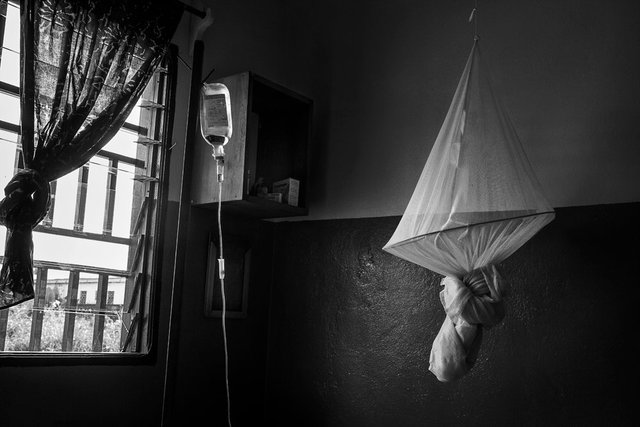
Health system in Cameroon is not for free, whether it is conventional medicine (public or private), or traditional medicine. The economic aspect (the availability of economical resources) is a central element in the choice as much as the cultural aspect, and a patient who is forced to choose the best system of care in case of illness, will choose also on the basis of its actual economical availability and costs of possible cures.
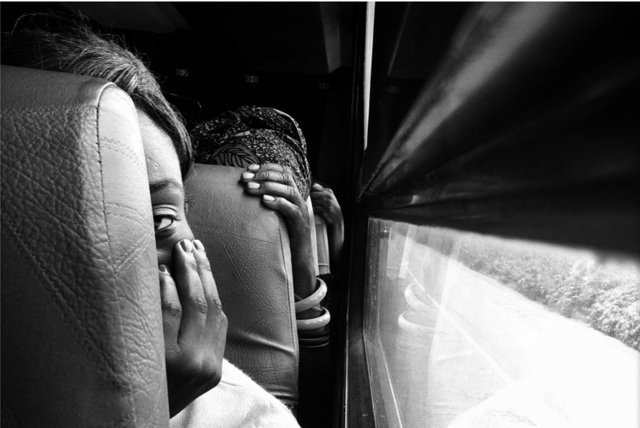
Yaoundè-Baffousam, on a public bus

Yaoundè, landscape
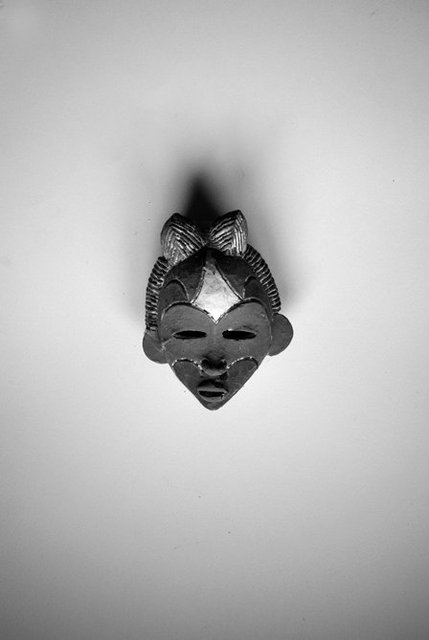
Traditional Mask, Cameroun. "In the African traditional society mask represents the appearance of a spirit coming from the forest to rule men's actions, to scare people or entertain them, to impose peace or instigate war, celebrate funerals or initiation rituals. In the whole Africa the word 'mask' doesn't indicate just what's covering the face of the man but it means incarnate spirit, present spirit. The mask wearer loose his individual identity to transform himself in something else. The mask wearer may die, the mask not: "A man may leave me (die), and he will be replaced. But a mask will never die. You'll never see a mask's grave. We're above men". © Bruno Zanzottera, 'Masks never die' http://www.parallelozero.com/reportage/african-masks-451-0
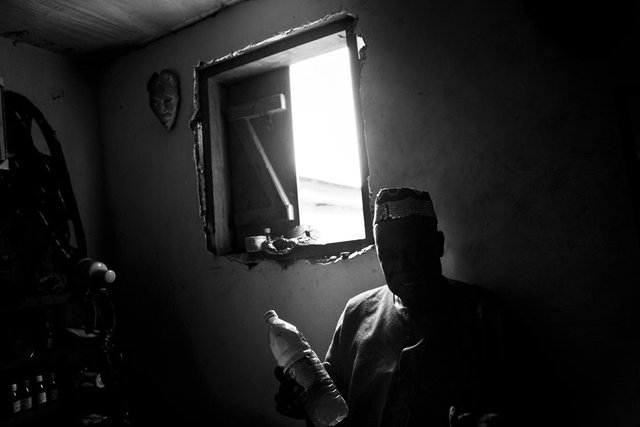
Traditional medicine is a deeply rooted knowledge, based on a different conception of illness, health, and care compared to the Western conception, and 80% of the population of Cameroon (as well as 80% of the African population, according to the WHO) uses traditional medicine as their primary health care system. This is due for cultural and economical reasons. The presence of improvised doctors or charlatans is evident, as well as the use of not verified products.

Traditional pharmacy, Yaoundè, Cameroun. - If you have time, I bring you to see my garden, I have so many plants I grow for my phitoterapic traditional laboratory. - I read outside your pharmacy that you can cure hepatitis B and C. I am skeptical, and I am convinced that there is no definitive cure against these strains of hepatitis. - it is not true, cure exists, I cured patients from hepatitis B and C. - then why you don't sell this solution on a grand scale! It would be the sanitary revolution to the whole world! it could save hundreds of millions of people, and you will be rich! I believe in Geovah , and I do what God tells me to do . Take this copy of the Bible, it is a gift from me "
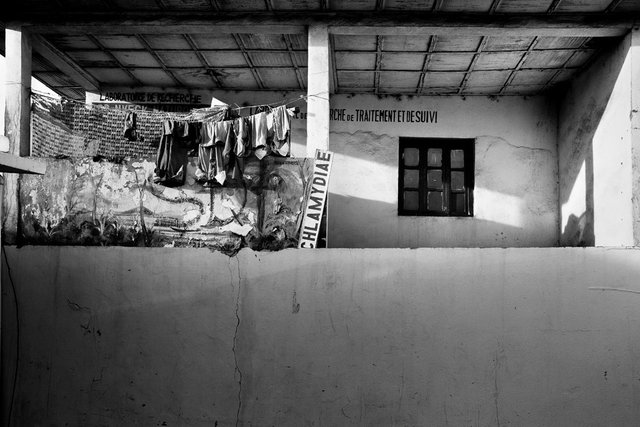
traditional pharmacy, Yaoundè, Cameroun. The wide presence of traditional clinics and an almost uncontrolled quality of offered services and products is a social evidence
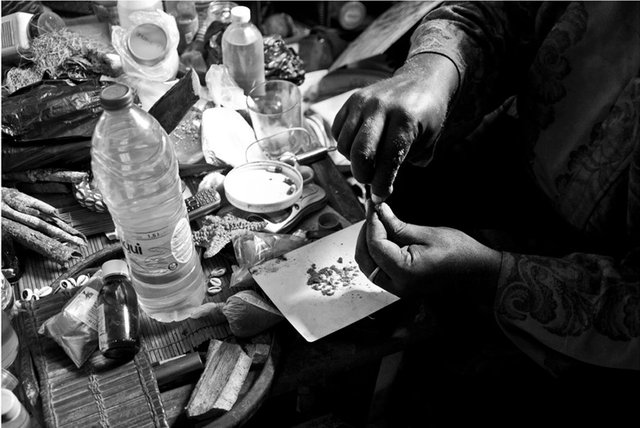
Traditional doctor, pills preparation. "now i'll prepare it, then you'll take, and after that you will tell me if it works or not, ok?"!
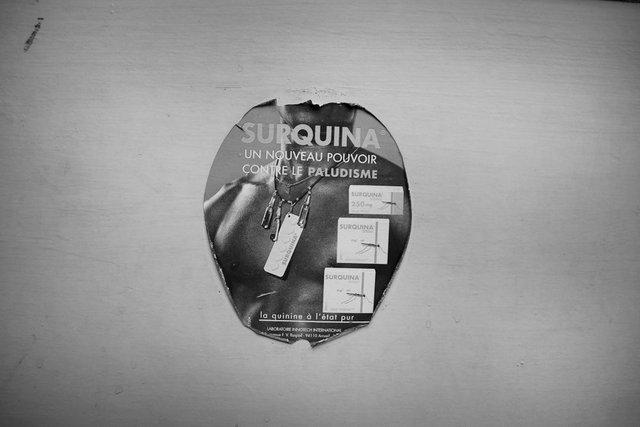
Anti-malaria product. In the image, the mix in between tradition and modernity is clearly evident.
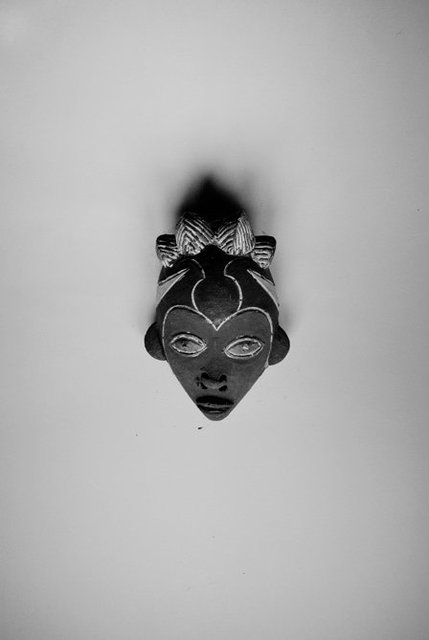
Traditional Mask, Cameroun. "In the African traditional society mask represents the appearance of a spirit coming from the forest to rule men's actions, to scare people or entertain them, to impose peace or instigate war, celebrate funerals or initiation rituals. In the whole Africa the word 'mask' doesn't indicate just what's covering the face of the man but it means incarnate spirit, present spirit. The mask wearer loose his individual identity to transform himself in something else. The mask wearer may die, the mask not: "A man may leave me (die), and he will be replaced. But a mask will never die. You'll never see a mask's grave. We're above men". © Bruno Zanzottera, 'Masks never die' http://www.parallelozero.com/reportage/african-masks-451-0
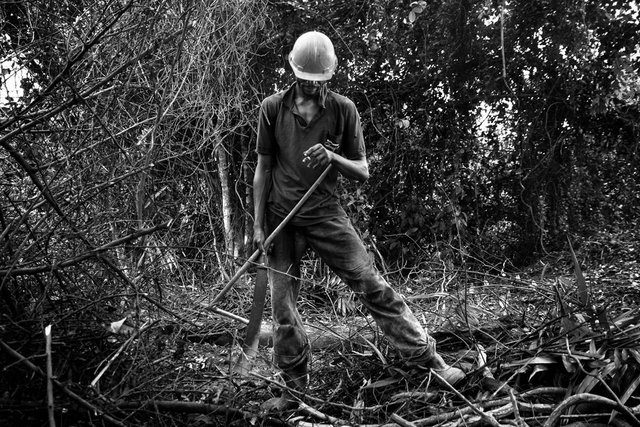
Kribi, Cameroun. In Cameroon, as in the whole Africa, traditional medical knowledge has been teached from father to son through the generations as a secret and meta-generational knowledge. For a multitude of reasons - education, immigration, different employment, consequences of decolonization process, etc.. - This centuries-long continuity has often been interrupted in recent decades, and an important part of the experience and traditional empirical knowledge has been lost, regarding knoledge of the proposed products and their use. "New" curators are often forced to improvise, even in good faith, in an empirical way, directly on the people, the validity and effectiveness of the proposed treatment, often without demonstrated (and demonstrable) validity.
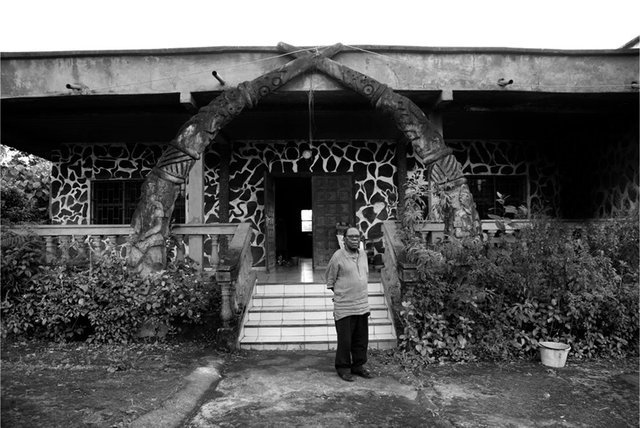
The elephant turks (in concrete) on the patio of the house define the social role of Mr Kayo. "My name is Patrice Kayo, I am a naturopathe. I treat: sinusitis, harterial hypertension, ovarian cyst, hepatitis B and C, prostatic hypertrophy, anemia falciforme, hemorrhoids, epilepsy, nervous depression, anxiety, high blood pressure. This is the list of the diseases I ma engaged with [...] " Doct. Patrice Kayo, Traditional doctor
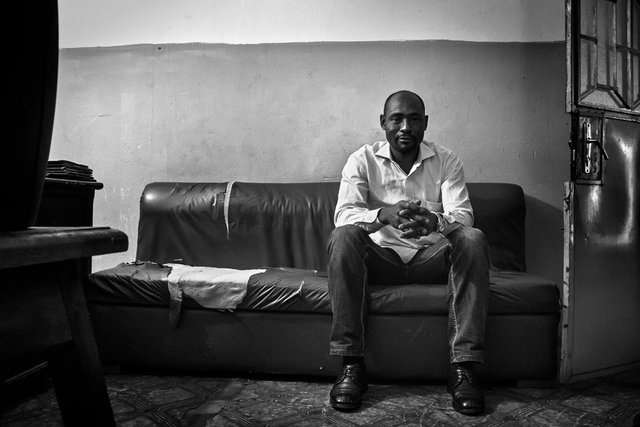
[... ] I took thypoid fever, I was very ill. - typhoid fever is very violent, I can imagine... - I do not want to die . Have you ever thought you were close to die? - Yes I do , I went to the hospital , in Italy urgency is for free. - Prof Kamden ( traditional doctor ) cured me. I come here sometimes to thank him. I do not want to die like this [...] Antoine D. , Patient
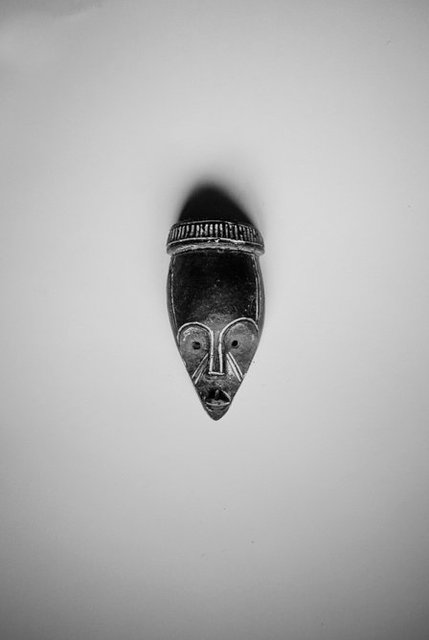
Traditional Mask, Cameroun. In the African traditional society maskrepresents the appearance of a spirit coming from the forest to rule men's actions, to scare people or entertain them, to impose peace or instigate war, celebrate funerals or initiation rituals. In the whole Africa the word 'mask' doesn't indicate just what's covering the face of the man but it means incarnate spirit, present spirit. The mask wearer loose his individual identity to transform himself in something else. The mask wearer may die, the mask not: "A man may leave me (die), and he will be replaced. But a mask will never die. You'll never see a mask's grave. We're above men". © Bruno Zanzottera, 'Masks never die' http://www.parallelozero.com/reportage/african-masks-451-0
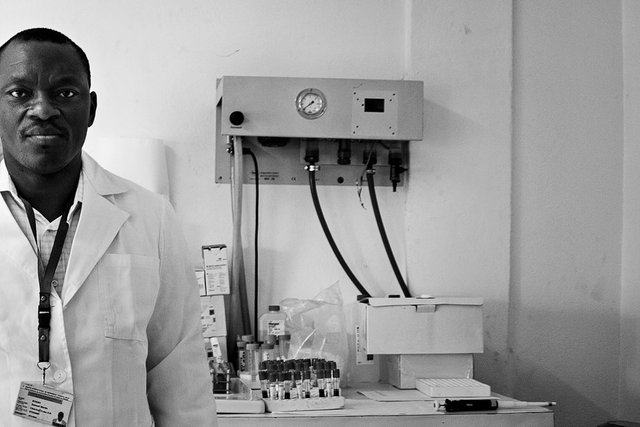
"If you do not understand that 90% of women cannot speak freely in the vast majority of the country, if you do not understand that here is very difficult for a man said that he is ill, or HIV-positive, simply because it means recognizing that they are weak, if you don't understand that deeply rooted ideas as well as economical needs are the key element of every intervenction, no project nor intervention will works [...] Doct. Martin Soso, Lab Manager CIRCB

Baffousam, Cameroun. "well, we don't have good materials to work with, you know, scarcity of resources is a true reality here in Cameroun. But we try to get the best from the tecnology we got". In the field of conventional medicine, scarcity of quality products and technologies is a serious concern in developing countries. Non only: procedural mistakes and lack of deeply professional knowledge significantly disrupts the validity and the outcome of the care offer. In addition, the economic aspect and the overall cost of care remain a central issue in choosing health system: for example, a caesarean birth costs about 400 euro in a conventional clinic (public or private), and it has to be payed fully and in advance, a bag of blood costs 30 euro, the average salary of the population is euro 300 per year. the economical aslect, plus the average quality of conventional medicine, are important aspect in the choiche of which care system a patient will choose.

"I studied in Russia , I graduated there, in Russia. I opened this clinic in 2005. We also do surgery, orthopedic surgey and caesarian birth surgery. But most of our patients come here for malaria.Do you want to know a patient who has been cured with traditional medicine? Come with me, I will introduce him to you.By the way, this is its clinical paper, you can photograph it, if you like. He is peeing blood? -well, he seems to have compromised kidneys, we have to see what will happen. And here , as you see, it is written that before coming here, he went a month to a traditional doctor. " - he tried...
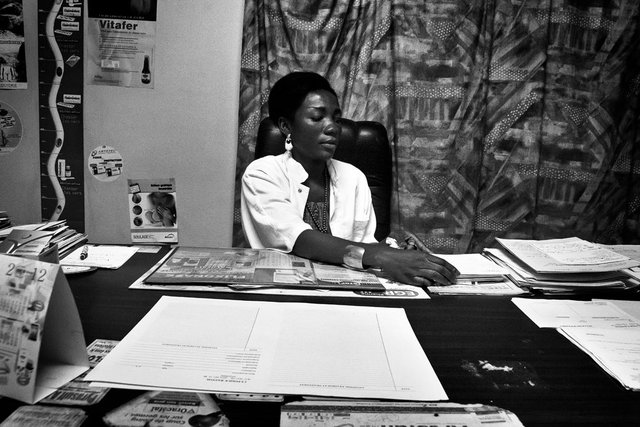
"Indeed, a great part of the population uses traditional medicine. The first reason, the most obvious, is the economical one. You see, a traditional doctor prepares a traditional product, a composition, at a price that will be much lower than the required expenses needed for the hospital, and for all the analysis that are often necessary for a diagnosis, that's why they prefer to go to traditional doctors. But the problem is also the chronic aspect of some diseases- think for instance to diabetes, high blood pressure, chronic gynecological infections responsible for infertility, or hepatitis, etc-: conventional medicine requires a lot of financial resources and have difficulty to be solve the problem in a definite way, and for that, turning to traditional healers, patients hope to have an immediate solution, definitive and decisive. A miracle [...] Doct. Patty Ngassa, Conventional doctor

Traditional Mask, Cameroun. In the African traditional society maskrepresents the appearance of a spirit coming from the forest to rule men's actions, to scare people or entertain them, to impose peace or instigate war, celebrate funerals or initiation rituals. In the whole Africa the word 'mask' doesn't indicate just what's covering the face of the man but it means incarnate spirit, present spirit. The mask wearer loose his individual identity to transform himself in something else. The mask wearer may die, the mask not: "A man may leave me (die), and he will be replaced. But a mask will never die. You'll never see a mask's grave. We're above men". © Bruno Zanzottera, 'Masks never die' http://www.parallelozero.com/reportage/african-masks-451-0

[...] When you were talking about these arguments, you were saying it was culture. But it is not culture, is poverty! What can you understand about culture of Africa? Let the cultural aspects aside, it is poverty that drives people to become charlatans. There was a time in which traditional medicine worked. Today is rare, it is not advanced as before. If you're ill, and if you have the money, you have to come here in hospital [...] Charlatans. Did you hurt your head? I give this product. You got prostate problems? They give you the same product. You have problems with you rhenis? Always the same (product). When you lose your job, you have to eat without suffering. Bon, j'ai dit. " Pascal B., Patient
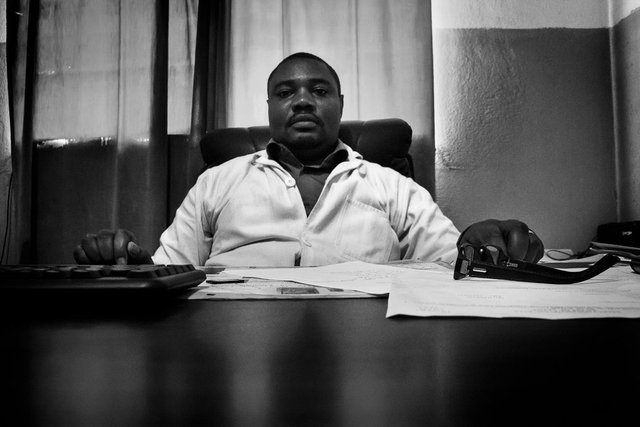
- […] Dr. Kamden , how do you ensure that your therapies work ? - - Ask around , I will let you to my patients if yu want. I can not guarantee that my systems always work, but that they are effective very often. - So, how do you ensure that a traditional healer is a professional, while another is a “charlatan” ( “charlatan” is the most used word to identify the category of impostors and fraud doctors) ? How professional healers protect theirself from impostors and charlatans ? -Our strenght is the opinion of the people. If you're a good doctor, people will speak well of you. If you are a charlatan, people will says bad things. Day after day, if people starts to see results, it will be the people themselves that will spread the voice. - You makes also advertisements on television. - Yes I do. If, after years, people still continues to come, well, this seems already a verification of the validity of my own medicine [...] " Doct. Kamden, Traditional Doctor

- I have trouble getting pregnant. I tried many remedies, I wanted to go to the hospital , but the analysis and treatment were too expensive! I have friends who have advised me to go to Dr. Joseph Kamden, and I saw him on television. My husband and I we will have a child Inshallah . Eloise F., patient.
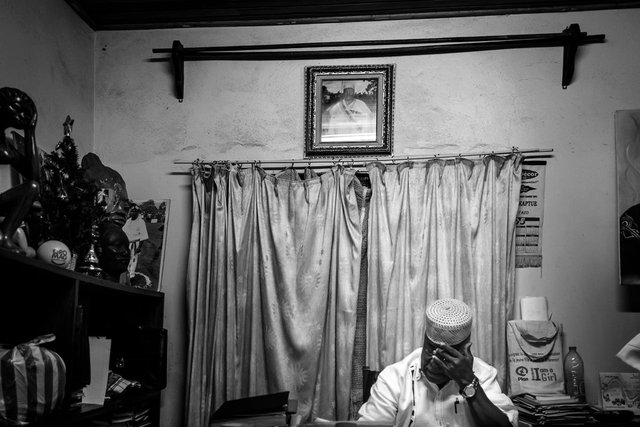
[...] Some traditional doctors say they can cure everything . They claim that they can cure HIV - in Yaoundé , Douala , Bafoussam , there are these healers -. There are some diseases that can be cured by traditional healers, it is obvious. But there are others where traditional medicine can do nothing . Traditional medicine has always existed, exists today as well as conventional medicine. Nobody can deny the fact that some healers do a good job. But we must say than others, and they are too many, are charlatans [...] Prof. Emetite Lazare Kaptuè one of the pioneers of the study of HIV in the world, since 1984.
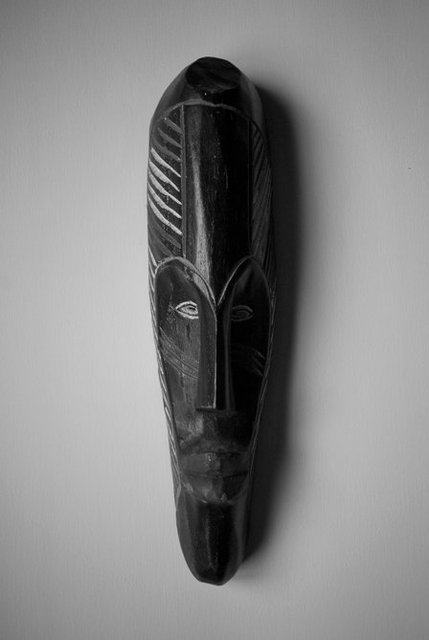
Traditional Mask, Cameroun. In the African traditional society maskrepresents the appearance of a spirit coming from the forest to rule men's actions, to scare people or entertain them, to impose peace or instigate war, celebrate funerals or initiation rituals. In the whole Africa the word 'mask' doesn't indicate just what's covering the face of the man but it means incarnate spirit, present spirit. The mask wearer loose his individual identity to transform himself in something else. The mask wearer may die, the mask not: "A man may leave me (die), and he will be replaced. But a mask will never die. You'll never see a mask's grave. We're above men". © Bruno Zanzottera, 'Masks never die' http://www.parallelozero.com/reportage/african-masks-451-0

Yaoundè, Cameroun. - How old are you ? - 38. - What is your condition? - I am HIV-positive. - When you discovered it? - 2 years ago. I had a girlfriend, I found a bottle ( of a traditional medicine n.d.R.) at home, I asked what it was used for, she replied me that it was a product for stomachace. I thought it was a lie, I went making analisis, and I discovered that I was HIV positive [...] Patient CIRCB

"I say to avoid charlatans. Charlatans are the real exploiters of traditional medicine. But also in conventional medicine there are charlatans. When they ask 200,000, 300,000, 150.000CFA for a treatment that at times, cannot cure [...] My dad was a traditional doctor, as well as my grandfather. Just twenty years ago I started to be a traditional healer . My mission is to help my brothers [...] I deeply regret having gone to school, then to work, and that I have not spent all my youngness the time to go with him ( with his father) At one point, my father camed back in a dream, and now it is the one who tells me which plants to use. […] I can effectively treat prostatitis and hemorrohoids . - Hemorrhoids are an underestimated and very disabling condition. - True, I can effectively treat hemorrhoids with my products. But there are other diseases where I can not operate, and I tell my patients to go elsewhere in the hospital. - What do you think of those curators who say they can cure everything ? - who are not humble. My father taught me humility. Doct . Fodjo Anselme, Traditional doctor Doct. Fodjo Anselme, Traditional doctor
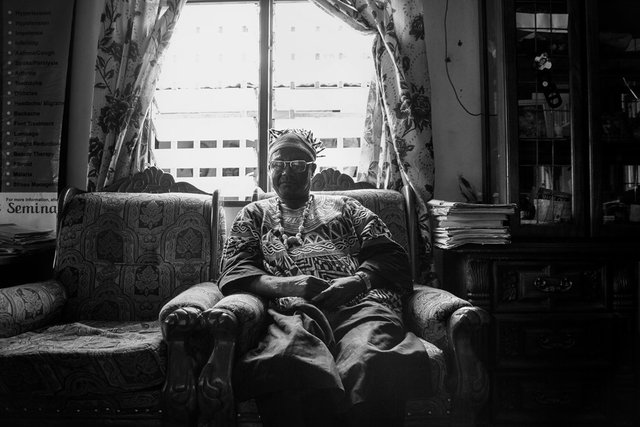
[...] All over the world, before of conventional medicine, there was the traditional one, which is the medicine of the people. Traditional doctors used plants before the advent of the laboratory [...] The traditional healer is a doctor, a lab technician, a mystic, a pharmacist, a nurse, an herbalist, a psychologist. I can spend three hours for a diagnosis of a patient, to find the cause of the disease. I do diagnosis, I prepare medicines, I cure, and I take care of. " Doct. Andjou, Traditional Doctor

" In my 30 years of medical practice , I realized that there are 5 types of medicine : western, traditional, natural, physical, spiritual . How you can explains it? There was a girl, and returned from France, she was ill. We took her to a spiritual doctor. He made a " spiritual scanning ", saying : " Your family sent you to study in France, why you was doing prostitution? Do you remember that night, when a Chinese and a Nigerian had sex with you, paying 3 million francs? Those 2 guys put the demon in you, and now it is destroying everything inside you”. Col. T. Ferihow , Conventional Doctor
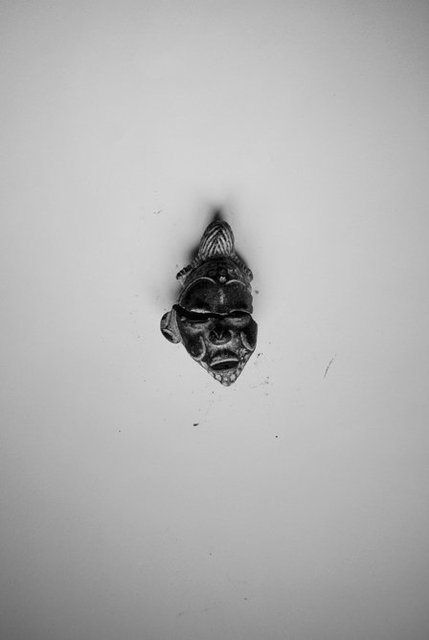
Traditional Mask, Cameroun. In the African traditional society maskrepresents the appearance of a spirit coming from the forest to rule men's actions, to scare people or entertain them, to impose peace or instigate war, celebrate funerals or initiation rituals. In the whole Africa the word 'mask' doesn't indicate just what's covering the face of the man but it means incarnate spirit, present spirit. The mask wearer loose his individual identity to transform himself in something else. The mask wearer may die, the mask not: "A man may leave me (die), and he will be replaced. But a mask will never die. You'll never see a mask's grave. We're above men". © Bruno Zanzottera, 'Masks never die' http://www.parallelozero.com/reportage/african-masks-451-0

[...] I asked Dr. Kayo (traditional doctor) to treat prostatitis. And i immediately saw the results! - Excuse me, but you had a prostatitis, or an enlarged prostate? - I was sick , and Dr. Kayo helped me. - Well, fattening prostate happens to all men over the age of 50... - Man, it hurted here ( indicating the point ) it was urting strong, very strong, i was not able to get up . With the product of Dr. Kayo I felt better, and since then, I've had no problems . - For curiosity, how much did it cost? Man, have you idea how much surgery costs? […]
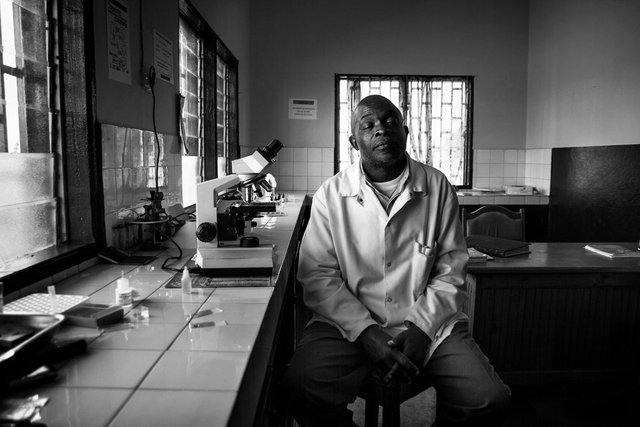
"Welcome to my laboratory".
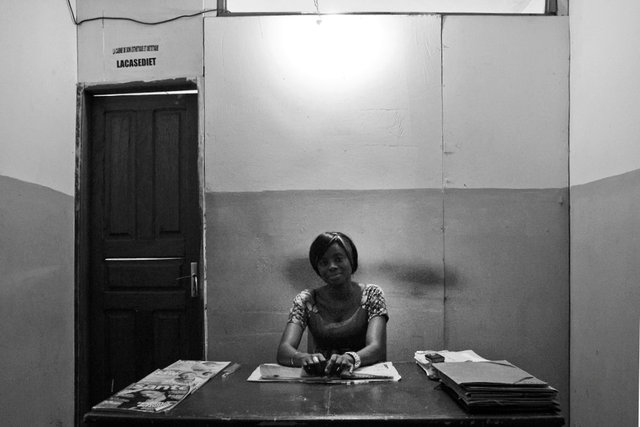
[...] Yes, doct. Kamden is very famous, you can see him also on TV. now he is visiting, but he will be pleased tyo meet you for this interview"
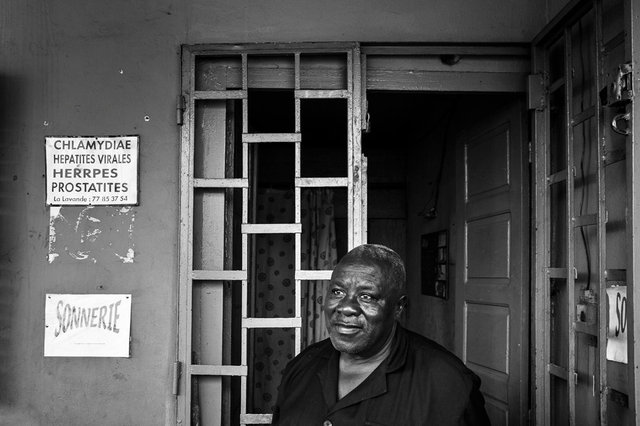
- I like plants and flowers , I've always liked . - well, you opened a phytotherapy center not for coincidence ! - If you have time, I bring you to see my garden, I have so many plants. - With pleasure! - I read out that you can cure hepatitis. I am Western , and especially skeptical, and I am convinced that there is no definitive cure against hepatitis . - it is not true, cure exists, I cured some patients from hepatitis. - then why you don't sell this solution on a grand scale! It would be the sanitary revolution to the whole world! I repeat, I am cynical , but it could save hundreds of millions of people, and you will make a lot of money ! I believe in Geovah , and I do what God tells me to to from the Bible . Take this copy of hte Bible, it is a gift. "

Traditional Mask, Cameroun. In the African traditional society maskrepresents the appearance of a spirit coming from the forest to rule men's actions, to scare people or entertain them, to impose peace or instigate war, celebrate funerals or initiation rituals. In the whole Africa the word 'mask' doesn't indicate just what's covering the face of the man but it means incarnate spirit, present spirit. The mask wearer loose his individual identity to transform himself in something else. The mask wearer may die, the mask not: "A man may leave me (die), and he will be replaced. But a mask will never die. You'll never see a mask's grave. We're above men". © Bruno Zanzottera, 'Masks never die' http://www.parallelozero.com/reportage/african-masks-451-0
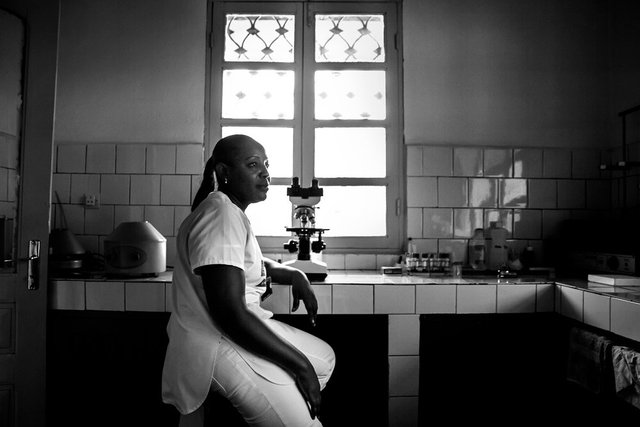
- What can I say : thank you for coming in this forsaken place. -It 's an honor to be welcomed by you, and thank you for the interview availability. - You see, this is the lab analysis which I am honored to represent. Here we work with archaic equipment, but we must be able to obtain the correct diagnosis of disease which a patient is suffering, and in what way the therapy has to be developed. That is why the laboratory is the heart of the hospital: everything starts from here, from the analysis, before anything, and this is, after all, our strength to be able to arrive at a diagnosis with archaic equipment and low-technologies. - I think that our students, in Europe, are no longer able to use arcaics tecnologies and methods : graduate students, undergraduates, who are no longer able to use a microscope in an effective way, which are not capable to make a red blood cell count, or recognize with easyness a malarial strain, or determine a parssitosis , or use chemical reagents to verify a virosis blood ... - There is much to say, it is true, we face every day with these issues ... - our students have much to learn here from you, to work effectively with little material and tecnologies.. - it is still medicine, and even in that way we save lives . By the way, what else should we do? [...]
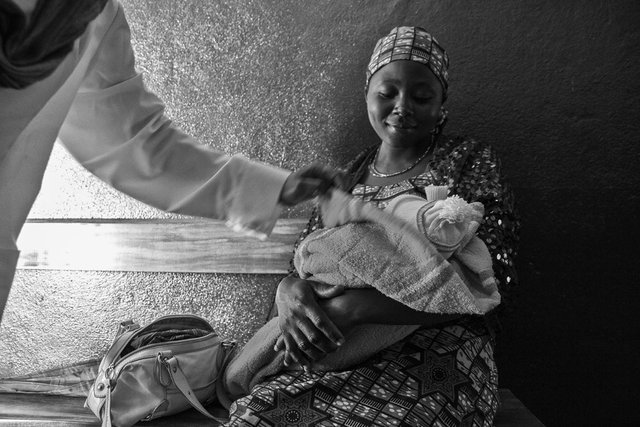

[ ...] The idea of a laboratory for the scientifical validation of traditional products is very important, of course! We talked a lot about charlatans. I believe that a laboratory is an instrument to autoeliminate, or autovalidate traditional doctors and tecniques, a selective medium [...] Another problem here in Cameroon, is the spread of counterfeit medicines, a parallel market without any effective warranty on the real percentages of principle active […] I thought I could develop an exchange with traditional healers . Many of them claim they can cure diseases such as ' HIV ol ' Hepatitis . Very well : let's see ! We are interested in the scientific validation of the medicines used: we find patients of traditional medicine, we perform tests that show that they are suffering, for example, of malaria , we ask which traditional medicines are taking , and after the break of the cure , we make new controls. This is the process of scientific validation [...] For this, I thought it could be born an exchange with traditional healers , here in Cameroon . Doct. Vitalis , Conventional doctor, University of Yaoundé
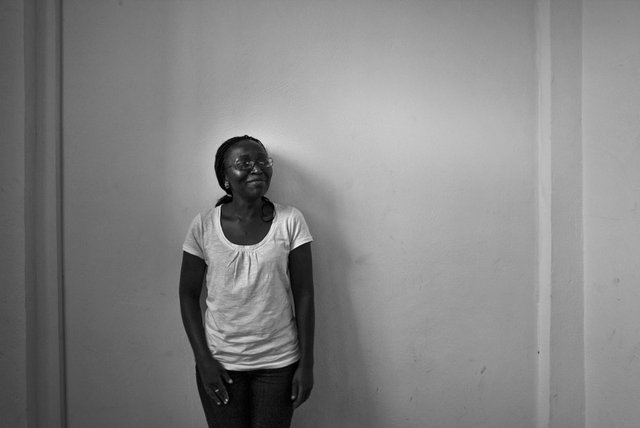
Medicine's mission is to Cure . Does not matter if it is traditional , conventional , chinese: Medicine is Caring, its mission is to cure. In Cameroon traditional medicine is an ancient reality, and there are several traditional doctors who really hepls people, I can not deny it. I think people goes to them for cultural reasons, certainly, but also, above all, for economic reasons. We know that hospitalization costs a lot. It 's much easier to go to traditional doctors, paying in trances, little by little, and we know that conventional health service (public or private) does not accept it . In hospitals you will not get credit, it is clear [...] "Stigmatization is not only face to face, from outsiders . It's also inside the house, within the family . We visit girls kicked out of the house, young pregnant girls, because they are HIV-positive . You often speak about loneliness of elders in Europe; I would say that loneliness here in Cameroun is for those girls. We are often forced to be kind-of-psychologists , and believe me, it is very difficult to see a girl of twenty years old chased away , because of this condition.
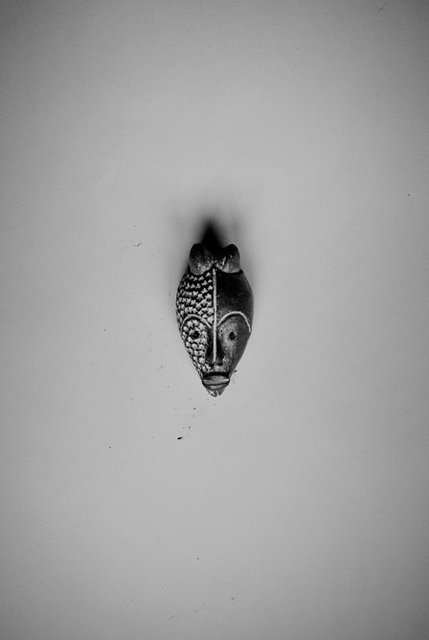
Traditional Mask, Cameroun. In the African traditional society maskrepresents the appearance of a spirit coming from the forest to rule men's actions, to scare people or entertain them, to impose peace or instigate war, celebrate funerals or initiation rituals. In the whole Africa the word 'mask' doesn't indicate just what's covering the face of the man but it means incarnate spirit, present spirit. The mask wearer loose his individual identity to transform himself in something else. The mask wearer may die, the mask not: "A man may leave me (die), and he will be replaced. But a mask will never die. You'll never see a mask's grave. We're above men". © Bruno Zanzottera, 'Masks never die' http://www.parallelozero.com/reportage/african-masks-451-0
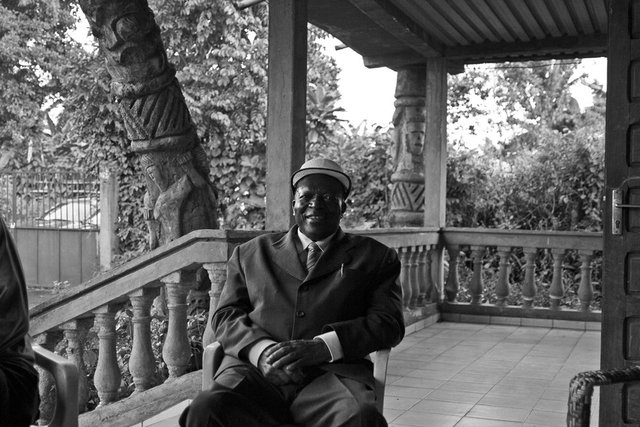
[...*, yes, my doctor is Mr. Kayo. He cured my prostatiti!"
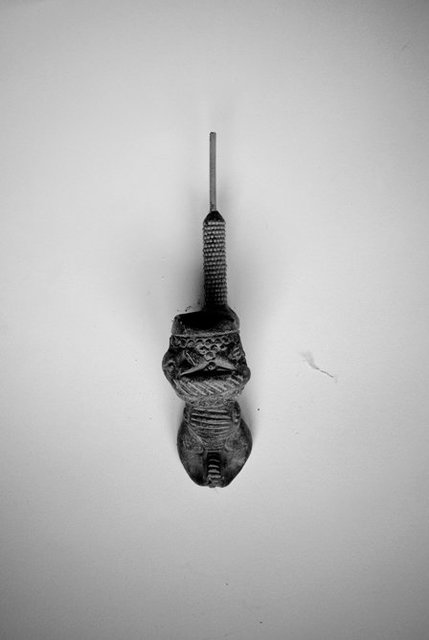
Traditional Mask, Cameroun. In the African traditional society maskrepresents the appearance of a spirit coming from the forest to rule men's actions, to scare people or entertain them, to impose peace or instigate war, celebrate funerals or initiation rituals. In the whole Africa the word 'mask' doesn't indicate just what's covering the face of the man but it means incarnate spirit, present spirit. The mask wearer loose his individual identity to transform himself in something else. The mask wearer may die, the mask not: "A man may leave me (die), and he will be replaced. But a mask will never die. You'll never see a mask's grave. We're above men". © Bruno Zanzottera, 'Masks never die' http://www.parallelozero.com/reportage/african-masks-451-0

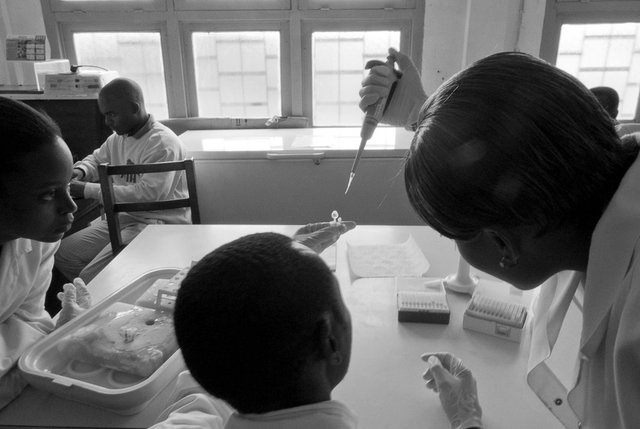
Search laboratory for malaria studies, Yaoundè, Cameroun
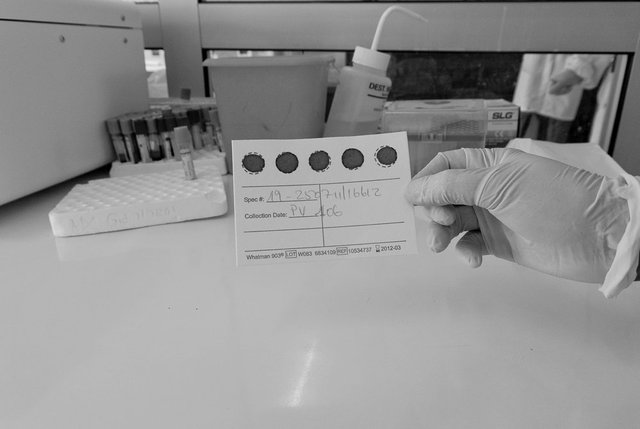
HIV test. It can be realized without electricity, allowing researchers to use it also in remote areas.
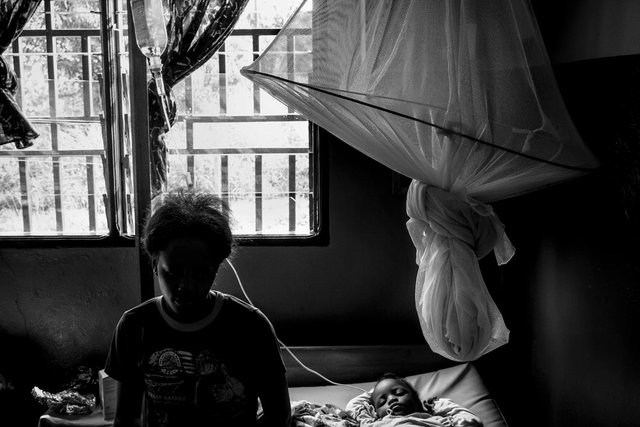
"our goal is to let children born without HIV from HIV affected mothers. Here, in Africa. We can do it, we will" Doct Rachel Kamgaing, lab manager of the CIRCB (Centre International de Recherche Chantal Biya), Yaoundè, Cameroun.
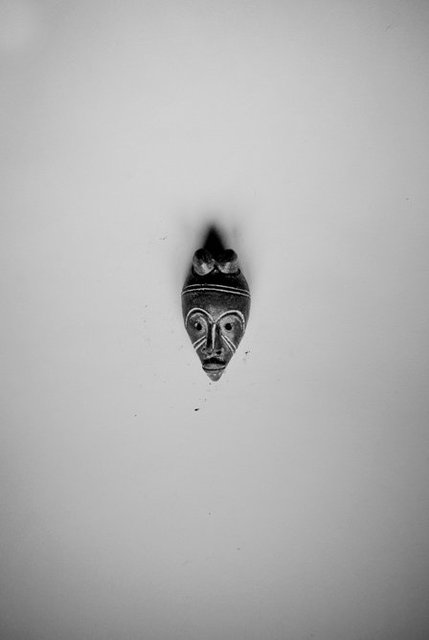
Traditional Mask, Cameroun. In the African traditional society maskrepresents the appearance of a spirit coming from the forest to rule men's actions, to scare people or entertain them, to impose peace or instigate war, celebrate funerals or initiation rituals. In the whole Africa the word 'mask' doesn't indicate just what's covering the face of the man but it means incarnate spirit, present spirit. The mask wearer loose his individual identity to transform himself in something else. The mask wearer may die, the mask not: "A man may leave me (die), and he will be replaced. But a mask will never die. You'll never see a mask's grave. We're above men". © Bruno Zanzottera, 'Masks never die' http://www.parallelozero.com/reportage/african-masks-451-0

Yaondè, Cameroun
